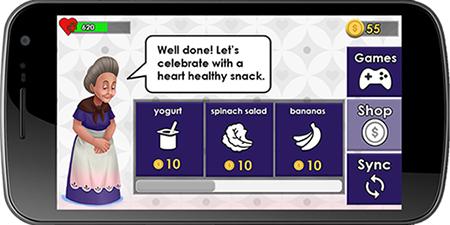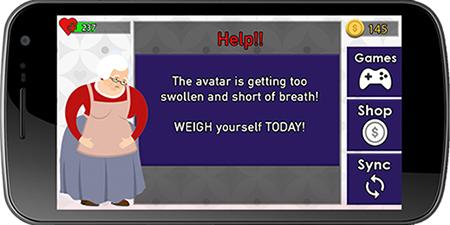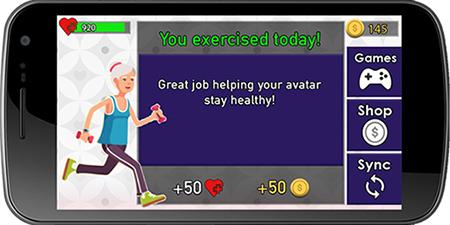As a young nurse working in a hospital medical surgical floor, Kavita Radhakrishnan, PhD, RN, MSEE and assistant professor at the UT Austin School of Nursing, used to worry that many of her cardiac patients wouldn’t make a successful transition from hospital to home.
She was right.

According to the Journal of the American Medical Association, patients diagnosed with heart failure (HF) are at risk for frequent hospital readmission, a situation that costs Medicare $26 billion per year and is Medicare’s greatest area of spending. In addition to being costly, readmission places a pronounced burden on the resources of the health care system, the patients themselves and their families. But readmission is considered by many health care professionals to be due in large part to a lack of self-care and, therefore, potentially avoidable.
“Although there have been big advances in cardiac treatment, the real impact on quality of life is when patients know how to take care of themselves,” Dr. Radhakrishnan said. “The truth is, they aren’t in the clinic or seeing their physician often. So once they are discharged from the hospital, the question becomes: How can we keep them safe?”
The key to that can be found in Dr. Radhakrishnan’s past. After growing up in India, she received an undergraduate degree in engineering before pursuing a master’s degree in the United States. Eventually she wound up in Boston and while looking for an engineering job she volunteered at a hospital and liked what she saw the nurses doing.
“It was the practical, analytical, problem-solving-driven work that really appealed to me,” she said. “But at the same time, I noticed that many of them were frustrated. They were looking for the right kind of technology to help them, but it wasn’t available.”
Dr. Radhakrishnan believed she could create some solutions but also knew she needed to be one of them in order to propose any changes. She enrolled in an alternate-entry nursing program and, to her surprise, found her calling.
“I really felt connected with the nursing courses.”
She also was able to take part in an honors research program for undergraduate nursing students at The University of Massachusetts-Amherst. Again, much to her surprise, soon after her pilot study on objective ways to rate clinical teaching using simulation was published, others benefitted from the thesis and began to see clear improvements in safety outcomes. The article became (and remains) one of her highest cited papers.
As a nurse in the hospital setting, Dr. Radhakrishnan decided that the most impact would happen in the home setting. Working with telemonitoring and telehealth increased her knowledge of that technology but also raised questions about its effectiveness.
“I believe patients aren’t being empowered enough. Even using this technology, the numbers mean nothing if they don’t know what to do with that information,” she said. “So, I asked myself, ‘What is keeping this technology from being more successful?’ That’s when I knew my research would focus on how to keep HF patients safe at home.”
She completed her post-doctoral training at the University of Pennsylvania to research patient characteristics that influence better outcomes when they receive telemonitoring. Her search for a way to prompt behavior changes informed her next pursuit: digital gaming.
Shortly after relocating to Austin, Texas, to join the UT Austin School of Nursing faculty, Dr. Radhakrishnan received a grant from the School’s Center for Health Equity Research (HER) to fund her first digital project, a collaborative effort with the UT Austin Simulation and Gaming Application lab to test the possibility of creating a device to improve the health of HF patients. The grant was HER’s inaugural funding of innovative self-management of chronic disease solutions.



“We developed a casino slot game using very low-level literacy-tailored knowledge. And even though the study’s sample size was only 19, we saw a significant improvement in knowledge in individuals who had been diagnosed with HF, some for as many as 10 years. Still, at that point, there was nothing to motivate the desired behavioral changes.”
Going back to the drawing board, Dr. Radhakrishnan joined forces with Christine Julien, professor, and Edison Thomaz, assistant professor, in the Department of Computer Science, and Matthew O’Hair with Good Life Games, a game development company in Austin. The idea was to create a digital tool to help people with chronic conditions by delivering contextually relevant information to prompt behavior changes, such as exercising and weight monitoring, by earning game rewards.
“Our goal was to harness the data from patient activity sensors to provide contextual relevance. For example, if the patient isn’t exercising, the digital tool senses it and sends them a message. They can see the outcome for themselves in the game.”
But evidence is a must. The truth is, Dr. Radhakrishnan acknowledges, it’s hard to change human behavior and health-related behaviors.
“We have to make sure it works. The real test is to get this to work in real-life conditions,” she said. “We are conducting a randomized trial with 44 HF patients in their home to see if it works as expected and the data transfer occur as expected. We also want to know if this game motivates physical activities and symptom monitoring behaviors and ultimately decreases readmission. Bottom line: Did it improve their quality of life?”
Tom Baranowski, PhD, professor, and a health game expert at Baylor College of Medicine, Houston, Texas, and Miyong Kim, professor, and director at the Center for HER at the School of Nursing, are helping with the conceptual design of the study. The team will eventually test with a larger sample to see if insights from the study inform future person-centered digital gaming solutions for other chronic diseases.
“At the very least, we are going to gather a lot of information about how older adults with HF interact with their devices and use a technological tool to self-manage their disease.”